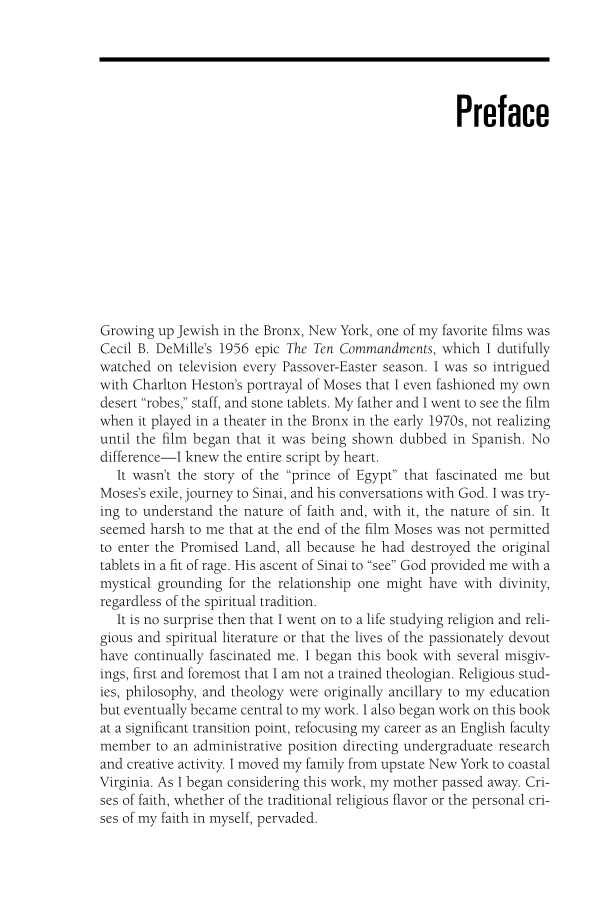Preface Growing up Jewish in the Bronx, New York, one of my favorite fi lms was Cecil B. DeMille’s 1956 epic The Ten Commandments , which I dutifully watched on television every Passover-Easter season. I was so intrigued with Charlton Heston’s portrayal of Moses that I even fashioned my own desert “robes,” staff, and stone tablets. My father and I went to see the fi lm when it played in a theater in the Bronx in the early 1970s, not realizing until the fi lm began that it was being shown dubbed in Spanish. No difference—I knew the entire script by heart. It wasn’t the story of the “prince of Egypt” that fascinated me but Moses’s exile, journey to Sinai, and his conversations with God. I was try- ing to understand the nature of faith and, with it, the nature of sin. It seemed harsh to me that at the end of the fi lm Moses was not permitted to enter the Promised Land, all because he had destroyed the original tablets in a fi t of rage. His ascent of Sinai to “see” God provided me with a mystical grounding for the relationship one might have with divinity, regardless of the spiritual tradition. It is no surprise then that I went on to a life studying religion and reli- gious and spiritual literature or that the lives of the passionately devout have continually fascinated me. I began this book with several misgiv- ings, fi rst and foremost that I am not a trained theologian. Religious stud- ies, philosophy, and theology were originally ancillary to my education but eventually became central to my work. I also began work on this book at a signifi cant transition point, refocusing my career as an English faculty member to an administrative position directing undergraduate research and creative activity. I moved my family from upstate New York to coastal Virginia. As I began considering this work, my mother passed away. Cri- ses of faith, whether of the traditional religious fl avor or the personal cri- ses of my faith in myself, pervaded.
Document Details My Account Print multiple pages
Print
You have printed 0 times in the last 24 hours.
Your print count will reset on at .
You may print 0 more time(s) before then.
You may print a maximum of 0 pages at a time.


























































































































































































